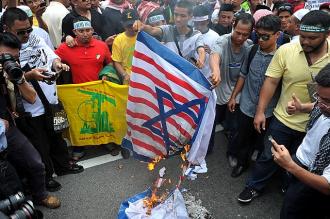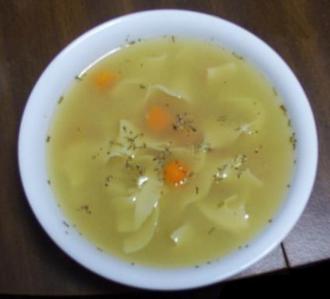Question #1: Why Eight?
Why was a miracle required so that the menorah would burn specifically for eight days?
Question #2: Seven or Eight?
Why is Chanukah celebrated for eight days, when the miracle was for only seven days?
Question #3: Why the Oil?
Why do we commemorate the miracle that happened to the oil, rather than the miracle of the victory against the superior Greek army?
The Eight-Day Mystery
Why was a miracle required so that the menorah would burn specifically for eight days?
Numerous approaches have been suggested to answer this question. These include:
1) The Mishnah (Menachos 85b) states that the preferred location from which they would obtain oil for use in the Beis Hamikdash was the city of Teko’a. The Geonim (Teshuvos Hageonim #104) write that the trip from Yerushalayim to Teko’a and back was eight days, and they therefore required this amount of time to obtain new oil (see also Meiri, Shabbos 21b).
2) Based on the Gemara (Avodah Zarah 43a; Menachos 28b; Rashi ad loc.) and on Megillas Taanis, we understand that when the Chashmona’im overcame the Greek army, they entered the Beis Hamikdash and discovered that everything – including all the vessels -- had been made tamei and were in serious disrepair. The golden menorah was unusable, so they brought seven iron spits, welded them together, plated them with lead, and used that as their menorah. They then set about repairing all the damage, which took seven days. During this time, they were too busy repairing the vessels to be able to prepare new oil. Therefore, the oil that they found lasted for eight days (Or Zaru’a, vol. II, #321).
3) Others write that, due to the war, everyone had come in contact with corpse tumah and required a full seven days in order to become tahor again. Therefore, after waiting the seven day period, it took them an additional day to extract fresh oil from the olives (Re’eim, commentary to Semag, Hilchos Chanukah; Beis Yosef, Orach Chayim 670).
Seven or eight?
A common question asked regarding Chanukah is referred to as “the question of the Beis Yosef.” Why is Chanukah celebrated for eight days, when the miracle was for only seven days? They had sufficient oil for one day. Although this question predates the Beis Yosef, his name has become connected with it because he asks it in his commentary to the Tur. Over the centuries, literally hundreds of answers have been proposed to this question. The Beis Yosef, himself, provides three. One of his answers is that they divided the flask of oil into eight parts, putting only 1/8 of the flask into the menorah each day. This miniscule amount had no natural capability of burning through the night, but a miracle occurred on each day and the oil sufficed, thereby making it into an eight-day miracle.
Another answer of the Beis Yosef was that after they poured the oil into the menorah, they discovered that there was still oil remaining in the flask. This miracle repeated itself each day of Chanukah – thus, both the first day had a miracle – the increase of the oil – and the eighth day – that they had miraculous oil to burn!
Some Acharonim question this: According to this approach, the oil used by the Chashmona’im was not crushed from olives, but created by way of miracle. Granted that this oil had all the nutritional properties of olive oil, it should have lacked the basic requirement to fulfill the mitzvah!
To explain this question a bit better, let us digress to a well-known story from our Prophets: The Navi (Melachim II 4:1-7) relates the story of the wife of Ovadyah who came to Elisha complaining that she was penniless and was going to lose her children to her creditor. Following Elisha’s instructions, she was able to fill every utensil in the house with oil, and the original flask was still full. Chazal (see Radak ad loc.) tell us that the woman came to Elisha and asked whether she was required to separate terumos and maasros from the oil, and Elisha told her that since the oil came about through a miracle, there was no need to do so. In other words, oil produced from olives is olive oil. Oil created by a miracle may be as nutritious as olive oil, but it is technically not olive oil.
Miracle or Bracha?
Some answer this question in the following way:
The Gemara (Bava Metzi’a 42a) cites a Baraisa that states as follows: “One who is about to measure the grain in his silo, recites the following prayer: ‘May it be Your will, Hashem, our G-d, that You bestow bracha on the work of our hands.’ When he begins to measure the grain, he says: ‘Blessed is the One who bestows blessing upon this pile of grain.’” The Ritva (ad loc.) points out that the Gemara is instructing the one who is measuring the grain to recite an actual bracha with Hashem’s Name: “Blessed are You, Hashem, our G-d, King of the universe, who bestows blessing upon this pile of grain.”
The Ramban explains that this bracha is said only when one is measuring the grain in order to set aside terumos and maasros. This is based on the idea that since Hashem promised in the pasuk, “Bring all of the maaser into the treasury… and test Me now therewith to see if I will not open for you the windows of heaven and pour down for you blessing until there is no room to suffice for it” (Malachi 3:10), Chazal instituted reciting this bracha to emphasize that Hashem’s bracha is an established fact.
Based on this, the Acharonim ask concerning the requirement of reciting a bracha when measuring grain, why does one have to separate terumos and maasros from the grain when it came about through a miracle?
According to the Ramban, the answer is obvious: The increase of the grain is not miraculous, but, rather, natural (He’oros Lemeseches Bava Metzi’a 42a). In other words, since Hashem promised to send a bracha in the grain – and He even dared us – “and test Me now therewith” – the fact that the grain increases is not miraculous, but rather something natural and straightforward. Furthermore, it could not be miraculous, for it were, we would not be able to daven that it take place, as one is not allowed to daven for miracles.
However, it is difficult to use this Ramban to answer the question that the Acharonim ask germane to the Beis Yosef’s question. The oil of the Chanukah story was not the result of Hashem’s bracha that He would consistently send into the grain, but rather, the oil was created through the means of a supernatural miracle (He’oros Lemeseches Bava Metzi’a 42a). Thus, it should not be kosher for lighting the menorah.
In a future article (not this year), I hope to present many other approaches that have been suggested to explain why Chanukah is eight days.
Why the Oil?
At this point, let us address the third of our opening questions:
Why do we commemorate the miracle that happened to the oil, rather than the miracle of the victory against the superior Greek army?
Rav Chayim Shmuelevitz, the Mirrer Rosh Yeshiva, in his talks on Chanukah would often focus on the following question: The holiday of Chanukah, along with the obligation to recite Hallel, was established because of the miracle of the oil. What is unique about this miracle that it was chosen for this distinction, as opposed to the miracle of the victory against the superior Greek army?
One possible answer is that the miracle of the oil was a neis nigleh, an open miracle, while the military victory was only a neis nistar, a hidden one. Rav Shmuelevitz dismissed this answer as being insufficient, for our obligation to thank Hashem is for what we received, and therefore there is no difference whether the miracle was overt or covert. We were the beneficiaries of Hashem’s miracle, and we have to thank Him.
Rav Shmuelevitz would explain this with a parable. There was once a family that had a precious diamond that had been passed down as an inheritance from generation to generation. At one point, the diamond was misplaced and could not be found. The family tore the house apart searching for the diamond, but they were unsuccessful. They were all so very disappointed. One day, one of the younger children was playing, and lo and behold, he found the diamond in some out-of-the-way place that had been overlooked. He ran to his father and presented him with the diamond. The father was so excited and happy that he gave his son a kiss. While all of the family members were overjoyed over the fact that the diamond was found, the young boy had an additional cause for joy – his father kissed him!
A Kiss from Hashem
In terms of the benefit received, the miraculous victory against the Greeks seemingly far outweighs the miracle of the oil. However, the miracle of the oil was an expression of Hashem’s love for the Jewish People, that He deemed it appropriate to change the laws of nature in order to allow them to perform a mitzvah. This miracle was a kiss from Hashem – for that, we praise and thank Him (Shalal Rav, Chanukah, pages 64-5).
Reward for Lighting Ner Chanukah
The Gemara teaches that someone who kindles Ner Chanukah will merit having sons who are talmidei chachomim (Shabbos 23b, see Rashi). This is puzzling; since all observant Jews kindle Ner Chanukah, why aren’t all our sons talmidei chachomim? The Rishonim explain that this bracha applies only to someone who observes the mitzvah carefully, in all its details (Sod Hadlakas Ner Chanukah, authored by Rabbi Yitzchok, the son of the Raavad). It is, therefore, in our best interest to be thoroughly familiar with all the halachos of kindling the Chanukah lights. May we all be blessed with a happy and healthy Chanukah!!
















